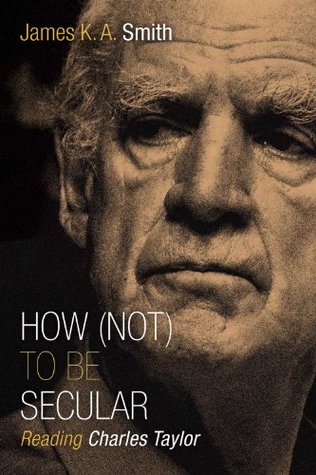More on this book
Community
Kindle Notes & Highlights
Read between
April 5 - August 3, 2019
paradoxical:
living in all the practices and institutions of [‘this-worldly’] flourishing, but at the same time not fully in them.
the high expectations of sanctification now spill beyond the walls of the monastery.7
This version of Reform “levels” two-tiered religion by actually expecting everyone to live up to the high expectations of disciplined, monastic life.
disburdening a society of the expectations of transcendence,
Pelagian assumption of human powers and thus an inadequate appreciation for the radical grace of God and for God’s action in salvation.
It is the (relatively immaterial) spoken Word of God and not magical things like the Host that is the means of grace.10
“sanctification of ordinary life”
camel’s nose in the tent of enchantment
this entails a kind of disenchantment:
“we reject the sacramentals; all the elements of ‘magic’ in the old religion” (p. 79). If the church no longer has “good” magic, “then all magic must be black” (p. 80); all enchantment must be blasphemous, idolatrous, even demonic
once the world is disenchanted and de-charged of transcendence, we are then free to...
This highlight has been truncated due to consecutive passage length restrictions.
rejection of sacra...
This highlight has been truncated due to consecutive passage length restrictions.
is the beginning of naturalism, or it at least opens the door...
This highlight has been truncated due to consecutive passage length restrictions.
evacuation of the sacred as...
This highlight has been truncated due to consecutive passage length restrictions.
It is religious Reform that calls for secular reform, which in turn makes possible exclusively humanist reform. The Reformation has some explaining to do.12
Creation, Nature, and Incarnation: A Zigzag Path to Exclusive Humanism
Our anachronistic hindsight tends to impose a secularist trajectory on earlier shifts whereas, in fact, they might have been “pointed” in a very different direction.
Now, from the vantage point of secular humanism, this new interest in nature can look like the next logical step on the way to pure immanence:
first distinguish God/nature, then disenchant, then be happy and content with just nature and hence affirm the autonomy and sufficiency of nature.
Such a story about the “autonomization” of nature posits a contrast or dichotomy between belief in God and interes...
This highlight has been truncated due to consecutive passage length restrictions.
This was primarily a revolution in devotion, not metaphysics.
exclusive humanism
pure immanence,
and could have gone o...
This highlight has been truncated due to consecutive passage length restrictions.
rise of nominalism,
which is a metaphysical thesis.
was not a proto-s...
This highlight has been truncated due to consecutive passage length restrictions.
metaphysically honoring a radical sense of God’s sovereignty and power.
God must always remain free to determine what is good.” So if one were going to preserve God’s absolute sovereignty, one would have to do away with “essences,” with independent “natures.” And the result is a metaphysical picture called “nominalism” where things are only what they are named (nom-ed) (p. 97). “But if this is right,” Taylor comments, “then we, the dependent, created agents, have also to relate to these things not in terms of the normative patterns they reveal, but in terms of the autonomous super-purposes of our creator [which can’t be known a priori].
God must always remain free to determine what is good.” So if one were going to preserve God’s absolute sovereignty, one would have to do away with “essences,” with independent “natures.” And the result is a metaphysical picture called “nominalism” where things are only what they are named (nom-ed) (p. 97). “But if this is right,” Taylor comments, “then we, the dependent, created agents, have also to relate to these things not in terms of the normative patterns they reveal, but in terms of the autonomous super-purposes of our creator [which can’t be known a priori].
Only what they are named with no Platonic "essence". This removes the divine Telos or Nature of the thing to CONFORM to a metaphysical idea of God's Sovereignty.
God must always remain free to determine what is good.” So if one were going to preserve God’s absolute sovereignty, one would have to do away with “essences,” with independent “natures.” And the result is a metaphysical picture called “nominalism” where things are only what they are named (nom-ed) (p. 97). “But if this is right,” Taylor comments, “then we, the dependent, created agents, have also to relate to these things not in terms of the normati...
This highlight has been truncated due to consecutive passage length restrictions.
final causality
“pulls”),
eclipsing any t...
This highlight has been truncated due to consecutive passage length restrictions.
Understanding something is no longer a matter of understa...
This highlight has been truncated due to consecutive passage length restrictions.
t...
This highlight has been truncated due to consecutive passage length restrictions.
discerning “essence”
but by empirical observation of patterns,
“a new understanding ...
This highlight has been truncated due to consecutive passage length restrictions.
all intrinsic purposes having been expelled, final causation drops out, and efficient causat...
This highlight has been truncated due to consecutive passage length restrictions.
incarnational interest
“mixed” with another development, nominalism, does it seem to head in that direction. There
between the two that generates a by-product that neither on its own would have generated
It involves a struggle to reshape ourselves”
no longer the search for Aristotelian or Platonic form,
The result is a monster: a Christianized neo-Stoicism that appends a deity to Stoic emphases on action and control.
sanctification


